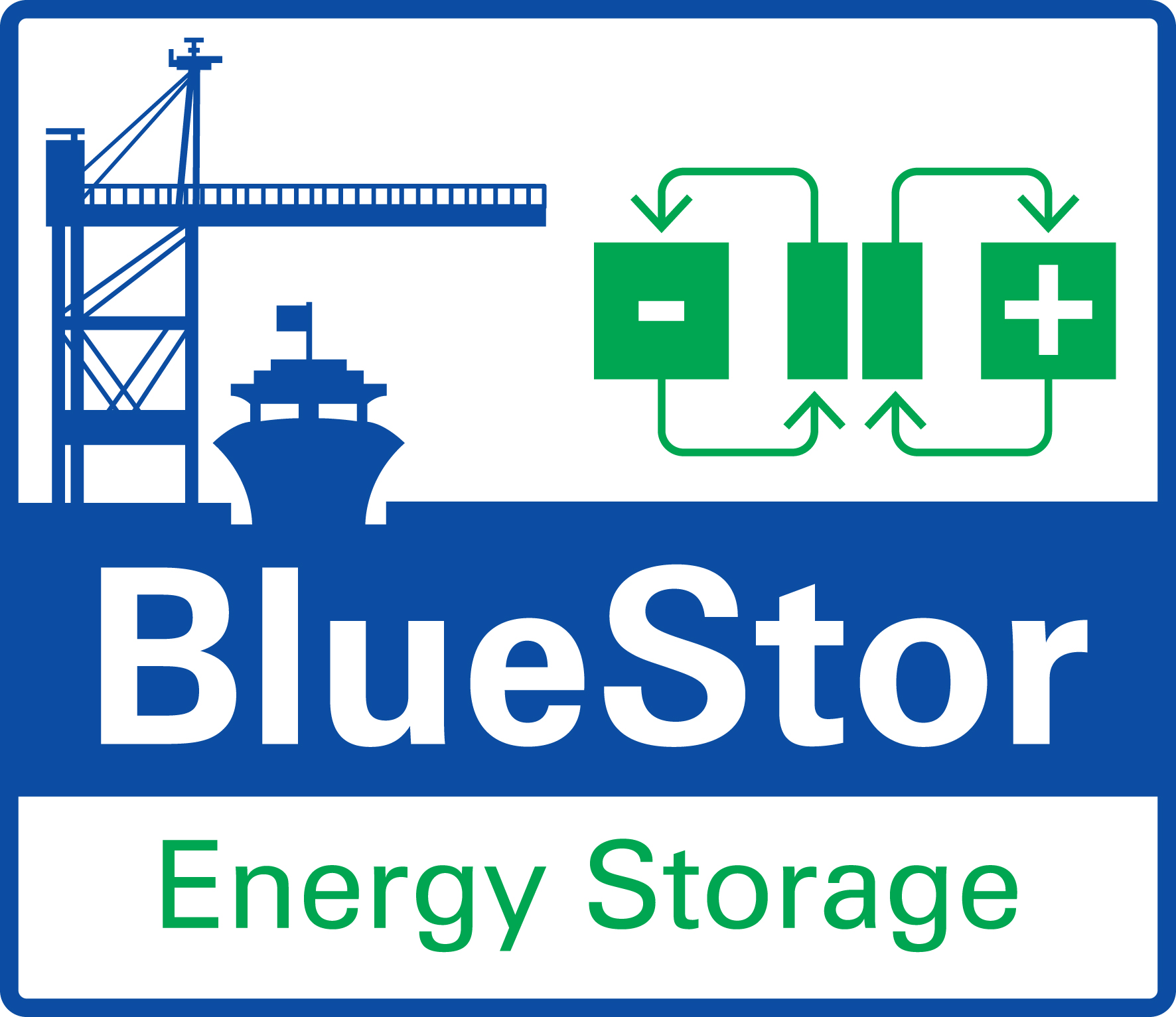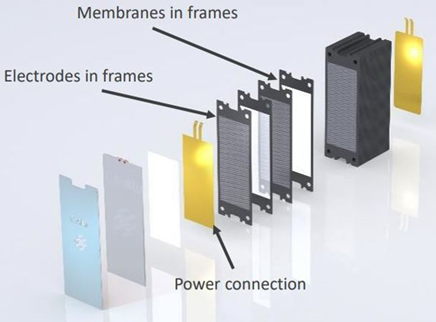BlueStor Port-based novel energy storage project overview

BlueStor is a port-based energy storage and distribution system that will help ports to decarbonise. It is based on organic flow battery technology that avoids many of the environmental disadvantages of conventional battery technologies, and is ideally suited to maritime applications.† The current phase of the BlueStor project which will demonstrate its feasibility has been successful in gaining BEIS funding under their Longer Duration Energy Storage (LODES) competition.
Initial test data indicates that this rapidly advancing technology offers improved performance, cost and environmental advantages for long duration energy storage compared to other battery types, including lithium ion or vanadium flow batteries. Decarbonisation of the ports and shipping sector is creating huge increases in electrical power demand, often beyond the capacity of existing grid connections. Significant additional electrical supply capacity is needed to provide shore power to vessels alongside and in-time to recharge electrically propelled vessels. The intermittent nature of power demand in ports makes them good candidates for long duration energy storage and management solutions. †
Flow batteries use a stack of †electro-chemical cells to convert electricity into chemical energy stored in charged electrolytes in external tanks. They are ideally suited to meet the requirement for longer duration energy storage because the storage capacity can be increased, at a relatively low cost, independently from the power rating of the stack.
The BlueStor project, with its port-based energy storage system, will have two major roles:
- The supply of electricity to visiting vessels and to in-port assets such as cranes and port vehicles, whilst minimising capital investment (on additional grid connection capacity) and optimising wholesale electricity price arbitrage;
- The sale of balancing services, including reserve power and demand turn-up, to electricity network operators or electricity aggregators. Low cost balancing service capacity is, in turn, crucial to expansion of the UKís renewable energy generating capacity.
The current Phase 1 of BlueStor will confirm the systemís technical and commercial feasibility. Demonstration of feasibility will support application for a subsequent Phase 2 project that would build and operate a pre-commercial prototype organic flow battery. This will demonstrate supply of electricity to visiting cruise ships when at berth in Portsmouth International Port. It will also demonstrate the capability to procure, at times of low demand, the energy to be supplied to these vessels.
BlueStor has significant environmental advantages over current commercial flow battery types because of its non-toxic, biologically-sourced electrolyte materials.
MSE International is the lead partner in BlueStor; energy and battery specialists, Swanbarton Ltd is supporting the battery engineering and construction as well as associated controls and interfaces; Houlder Ltd, marine and offshore engineering and clean technology specialists, is designing the battery platform and port/vessel interfaces. Pioneers in organic flow batteries, CMBlu are supplying the electro-chemistry for the flow battery.†
BlueStor is contracted by the Department of Business, Energy and Industrial Strategy (BEIS) under its Longer Duration Energy Storage Programme (LODES).
To be kept informed of this project and other relevant projects please join our Maritime Decarbonisation Interest Group here.

Organic flow battery technology image courtesy of CMBlu
†


